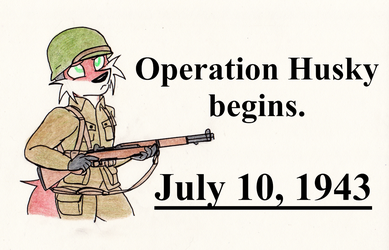Sign In
CloseOn July 3, 1898, the Siege of Santiago begins during the Spanish-American War. The beginning of siege saw American troops and Cuban rebels establish a line encircling the coastal city of Santiago. At the same time, an American naval fleet engaged the heavily outgunned Spanish fleet at Santiago, resulting in the complete destruction of the Spanish force. These two factors meant that the Spanish forces in Santiago were cut off from escape; however, a Spanish relief column did successfully fight its way through the rebel-controlled section of the line, bring the Spanish force in Santiago up to 13,500 to counter the 19,000 man American and Cuban force. July 4 saw the arrival of artillery and four Gatling guns on the American lines as well as a temporary ceasefire to allow for the evacuation of civilians from the city. With the Spanish forces having no means of escape and the Americans being ravaged by an outbreak of Yellow fever, both sides wished for a quick end to the campaign. On July 13, leaders from both sides met to discuss the terms of surrender for the Spanish. The offer extended by the Americans included allowing the Spanish troops to be repatriated to Spain while the Americans were to be ceded Guantanamo City and San Luis. On July 16, the Spanish garrison in Santiago officially surrendered and marched out of the city the following day. 1,614 Americans and 2,000 Spanish troops were either killed or wounded during the siege. The American military campaign in Cuba was essentially over, though Yellow fever would continue to take its toll. However, the fighting would continue in the Philippines until the war finally ended on August 12-13, 1898, with the United States gaining the Philippines, Guam, and Puerto Rico as territories and establishing Cuba as a protectorate.
Submission Information
- Views:
- 212
- Comments:
- 0
- Favorites:
- 2
- Rating:
- General
- Category:
- Visual / Traditional




